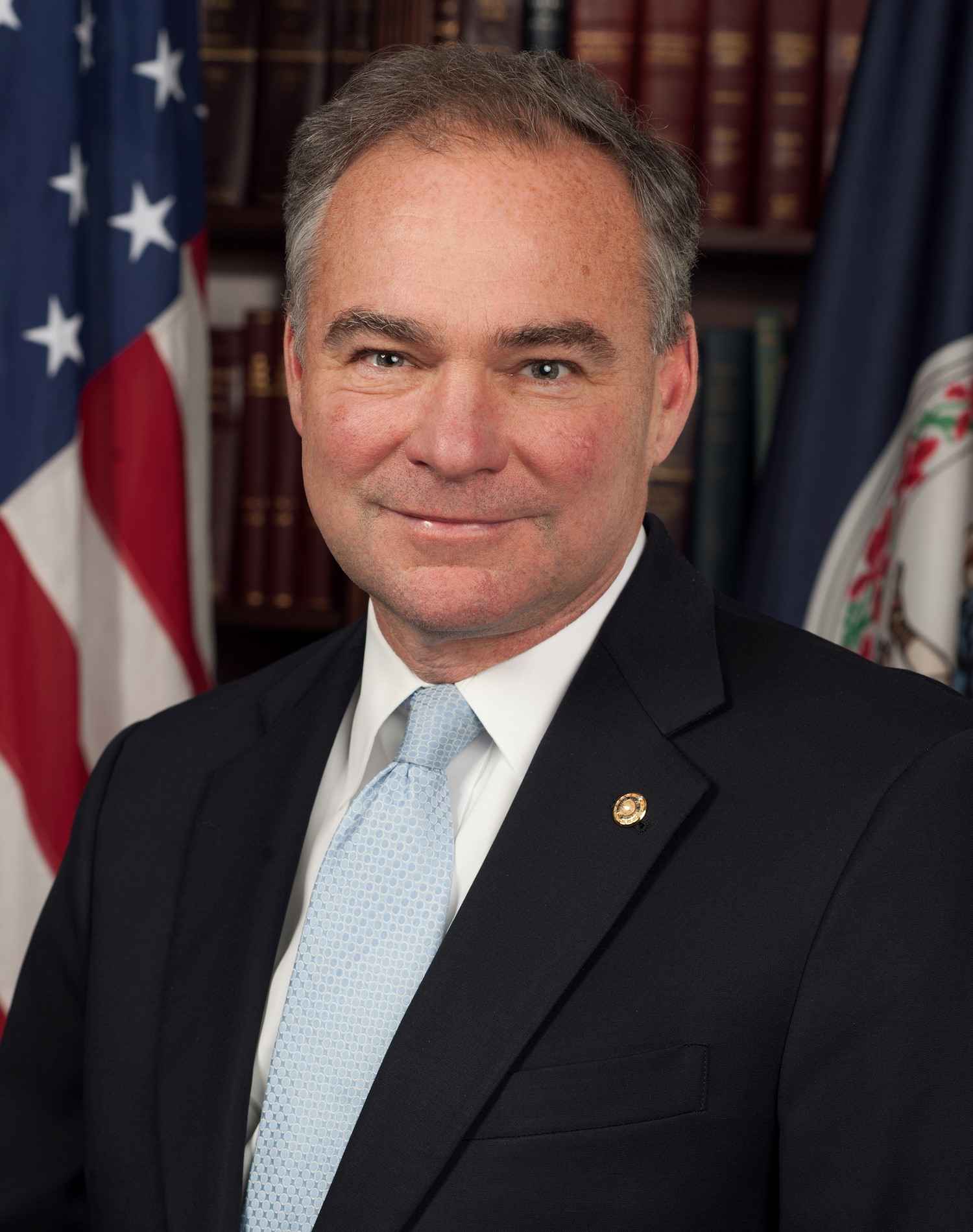Senate candidate Q&A with Tim Kaine
The Champion asked the same seven questions with the same 800-word limit to the candidates for the Senate seat. Election Day is November 6.

Q. How did you come to the decision to run for Senate?
A. When I finished my term as governor, I had no intention of running for another office. Then a Senate seat surprisingly opened up, and I asked myself, “Do I have any unfinished business?” And I did. Despite my efforts, voters passed an anti-LGBT amendment to the Virginia Constitution in 2006, and I had been working with Virginia Indian tribes for years to get them the federal recognition they deserved, but we kept falling short. I wanted to help make progress in these areas beyond what I could do in local or state office. While I’ve been in the Senate, we have. I signed a Senate amicus brief advocating for marriage equality and celebrated when it became (the) law of the land in 2013. A bill recognizing Virginia’s tribes finally passed just this year. I’m proud of what I’ve been able to accomplish, but I’ve learned that if you want to help people and take the time to listen to them, there will always be unfinished business on your “to do” list. I have more to do, and I would be honored to have your support as I keep at the work.
Q. How do you work with other Congressional leaders who may sit on the opposite side of the aisle than you?
A. In my 24 years in public service, I’ve been focused on bringing people together, no matter what side of the aisle they sit on. By working together with colleagues from a range of ideologies on shared priorities, I’ve found that I’ve been able to keep moving Virginia forward on all kinds of issues. That’s how I was able to expand pre-K as mayor of Richmond, and how I steered the commonwealth through the country’s worst recession in 70 years, while earning Virginia recognition for its business climate. I brought that same mentality to the Senate where I’ve worked across (the aisle) to pass bipartisan legislation to reduce veterans’ unemployment, fund childhood cancer research, protect open space and provide better tools to deal with campus sexual assault.
Q. Why should college students vote? And why specifically a Liberty student?
A. Last year’s elections in Virginia showed that every vote matters — we saw a race decided by what was basically a coin flip. Millennials are the largest current generation in America. If young people vote, they have the opportunity to have an enormous say in the direction of our commonwealth and our nation.
Q. What is a personal belief you hold that grounds your political work?
A. I grew up in a middle-class family — my dad ran an iron-working shop in Kansas City — and I learned from my parents the values of hard work, being kind and, most importantly, serving others. That’s why I believe in putting middle class families first — creating economic opportunity for all Virginians is my top priority. I know that our economy is strongest when workers and families (have) access to good paying jobs, higher wages and the skills to succeed and get ahead. That’s why I’ve passed legislation to help veterans transition to civilian jobs, expand and improve career and technical education for young people, and support legislation to raise the minimum wage and ensure equal pay.
Q. Why is the abolishment of ICE beneficial or detrimental to Virginia citizens?
A. Our immigration system is broken, but the solution is comprehensive immigration reform, not abolishing ICE. I was proud to support the bipartisan deal that created a path to citizenship and also funded border security. That’s what I’ll continue to push for, in addition to bipartisan solutions for Dreamers and (Temporary Protected Status) recipients, because our diversity only makes us stronger.
Q. How would you attack the student debt crisis?
A. College affordability is an issue our country is grappling with at the national, state and especially family level. Because there isn’t one path that will work for everyone, I am pushing for a number of strategies that will ease the burden of debt and enable students to succeed in the workforce. First, greater access to career and technical education can help students gain the skills they need at a much less prohibitive cost. In addition, I’ve fought for greater transparency in the process of paying for college tuition by introducing legislation that makes it easier for students and families to access financial counseling, and have pushed for other initiatives, like debt forgiveness programs, college dual-enrollment programs for high schoolers, and opportunities for students to refinance their debt.
Q. If re-elected, what type of working relationship do you foresee having with the current White House administration?
A. I’ve never been afraid to stand up to the president when his policies hurt Virginians. That’s why I spoke out when the president and Republicans in Congress tried to repeal the Affordable Care Act, threatening the health care of hundreds of thousands of Virginians and millions of Americans. It’s why I’ve been critical of his attempts to ban immigrants from Muslim countries, deny a pay raise to federal workers and impose tariffs that hurt farmers and consumers. But I will always reach across the aisle to find common ground, which is why I’m proud the president has signed 17 of my bills into law, including efforts that tackle military spouse unemployment and initiatives expanding access to career and technical education.
